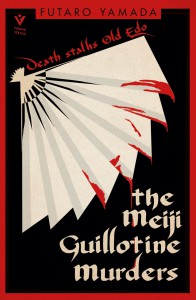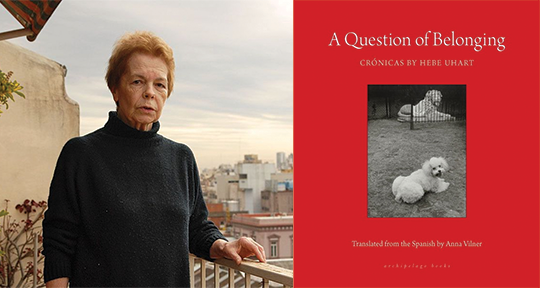This Translation Tuesday, we bring you a poignant excerpt from the latest novel by Québécois author Maude Nepveu-Villeneuve, translated into English by Kate Lofthouse. In plangent, methodically-detailed vignettes, Nepveu-Villeneuve’s narrator describes her return to Moreau, the village of her childhood. In the wake of a recent tragedy, her perception of the world around her comes unmoored; she feels as if she has never left Moreau, as if her years away were only a nightmare, yet Moreau also seems unreal, “a figment of my imagination.” Struggling to engage with the world as a thing separate from herself, the narrator spirals into her past, moving from distant memories of childhood vacations abroad towards the cause of her present alienation.
I’ll just . . . go home to my sad life and be miserable forever.
—Maddy Thorson, Celeste
Summer is darker than winter on my parents’ street, once green leaves fill the branches of Moreau’s trees and their ancient foliage has cast its shadow over the houses. My parents escape in search of sunshine every year, to Spain, Morocco, Belize, anywhere the July heat is more oppressive than it is on their little shaded street in a small village lost up in the north, a little town I never name when people ask me where I come from, because it doesn’t mean anything to anyone, so I always go back to the closest big city saying around there, and people nod and shrug, because even that city is a minor one, insignificant, one never mentioned in weather reports and which people struggle to picture.
They took me with them when I was little. The three of us went, a close-knit and indestructible family unit with the same sturdy blonde heads and indistinguishable laughter, we fled the shade cast by the old trees over the bungalows and the lawns, and we walked along the shores of Caribbean islands or through the streets of Cairo or Terceira. I would have preferred the cool air of our little street, riding my bike around the block for hours, napping in the hammock in the backyard, drawing on the pavement with Laure, my neighbour from across the way, my best friend. But my parents had other ideas, we left at the end of the school year and came back at the beginning of August, in time to buy supplies and new clothes.








